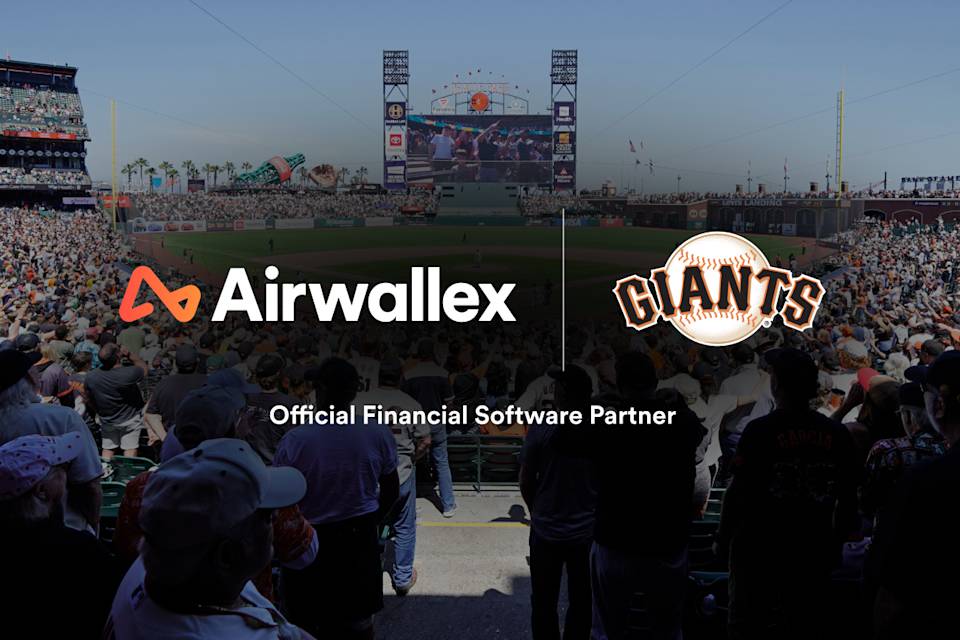The interbank foreign exchange, or FX, rate is the most fair value of a currency at any given moment, and is often considered the most accurate exchange rate. It's the most accurate reflection of live global exchange rates, not including any added markups or fees from brokers or banks. It’s also known as the ‘mid-market rate’ or ‘spot rate’.
As well as impacting businesses conducting international transactions and exchanging currency, the interbank rate’s significance also extends across international investment, risk management, and the accurate valuation of globalised assets and liabilities.
Airwallex offers businesses access to interbank rates when exchanging currencies. This means our customers enjoy market-leading exchange rates on their global business transactions.
How the interbank rate is calculated
In foreign exchange markets, the interbank rate is the exchange rate between a currency's ‘bid and ask’ rates.
A bid-ask spread (which can also be referred to as a buy-sell spread) is the difference between the highest price that a buyer is willing to pay for something and the lowest price that a seller is willing to sell something for. The ‘bid’ price relates to the individual looking to sell, and the ‘asking’ price relates to the buyer and what they will pay to purchase.
When faced with a standard bid and ask price for a currency, the higher price is what you would pay to buy the currency (the bid price), while the lower price is what you would receive if you were to sell the currency (the asking price).
The interbank rate is the term used to describe the midpoint rate of the bid-ask spread when conducting a foreign exchange transaction. The interbank rate is calculated simply by using the median (midpoint) of the bid and ask (offer) rates.
Interbank exchange rate = (bid rate + ask rate) ÷ 2
To make the interbank rate work, two parties (the buyer and the seller) need to be willing to transact in opposite directions at the same time.
The significance of the interbank rate
The interbank rate is important for both individuals and businesses to consider for several reasons.
It’s the benchmark for international transactions
Financial institutions, banks and businesses often use the interbank rate as a benchmark when conducting international transactions. It serves as a reference point for determining fair exchange rates.
Transparent pricing
The interbank rate promotes transparency in foreign currency exchange. By using this rate as a reference, all parties involved in transactions can better understand the real value of the currencies being exchanged.
Risk management
Businesses and investors use the interbank rate for risk management purposes. It provides a baseline for assessing currency exposure and making informed decisions about hedging strategies.
Calculation of currency conversions
When converting one currency to another, the interbank rate serves as a starting point for calculating the exchange rate. While everyday consumers may not directly access this rate, it influences the rates they encounter, as long as they remember to include any fees or margins added by currency exchange providers.
International trade and investment
The interbank rate plays a crucial role in facilitating international trade and investment. Businesses rely on accurate exchange rates to determine the cost of goods and services, and investors consider currency valuations when making cross-border investments.
Cross-border financial reporting
Companies with international operations use the interbank rate for financial reporting purposes. It helps provide a more accurate representation of the value of their assets, liabilities, revenues, and expenses in different currencies.
How the interbank rate affects financial decisions
The interbank rate serves as a fundamental reference point for making financial decisions, influencing the facilitation of fair financial transactions and contributing to the overall transparency of global financial markets. It can affect financial decisions for individuals and businesses in a number of ways.
By incorporating an understanding of the interbank rate into financial decisions, individuals and businesses can optimise their financial outcomes, reduce unnecessary costs, and navigate the complexities of a globalised economy more effectively.
International money transfers
Individuals or businesses sending or receiving money across borders may encounter rates based on the interbank rate. However, many money transfer services often charge a fee and adjust the rate slightly, affecting the total amount received by the recipient. For market-leading rates on your international money transfers and no hidden fees, try Airwallex.
Import and export transactions
Businesses engaged in international trade use the interbank rate as a reference point to calculate the cost of their goods and services in different currencies. This will influence how much they charge customers, as well as impacting profit margins for both importers and exporters.
Hedging and risk management
Investors and businesses use the interbank rate to assess currency exposure and implement hedging strategies. By understanding the fair value of currencies, they can make informed decisions to mitigate the impact of exchange rate fluctuations on their financial portfolios.
Cross-border investments
Investors looking to make international investments should consider the interbank rate to assess the true value of assets in different currencies. This influences their investment decisions and helps them navigate the complexities of international financial markets.
Financial reporting for multinational corporations
Multinational corporations rely on the interbank rate for their financial reporting. It ensures that their financial statements accurately reflect the value of their assets, liabilities, revenues, and expenses across diverse currencies, providing a comprehensive view of the company's global financial position.
Cryptocurrency exchanges
Some cryptocurrency exchanges use the interbank rate as a benchmark for pricing digital assets against traditional fiat currencies. This practice helps establish fair and transparent values for cryptocurrencies in the context of global currency markets.
Navigating the interbank rate in currency exchange
Understanding the interbank rate will help your business make smarter decisions when dealing with different currencies. From deciding when to exchange money to pay your overseas suppliers, to setting prices for products in the global market.
At Airwallex, we offer access to the interbank rate, helping you reduce your foreign exchange costs when doing business globally. If you’re stuck using a traditional bank to manage your global finances, you’ll probably find that the foreign exchange rates are not nearly as favourable. This is because banks often add steep markups to their ‘mid-market rates’, and you may end up paying exorbitant hidden fees without even realising it.
To take control of your global money management, sign up for an Airwallex account today.
View this article in another region:Hong Kong SAR - EnglishHong Kong SAR - 繁體中文

Tilly Michell
Content Marketing Manager
Tilly manages the content strategy for Airwallex. She specialises in content that supports businesses in their growth trajectory.
Posted in:
Transfers


